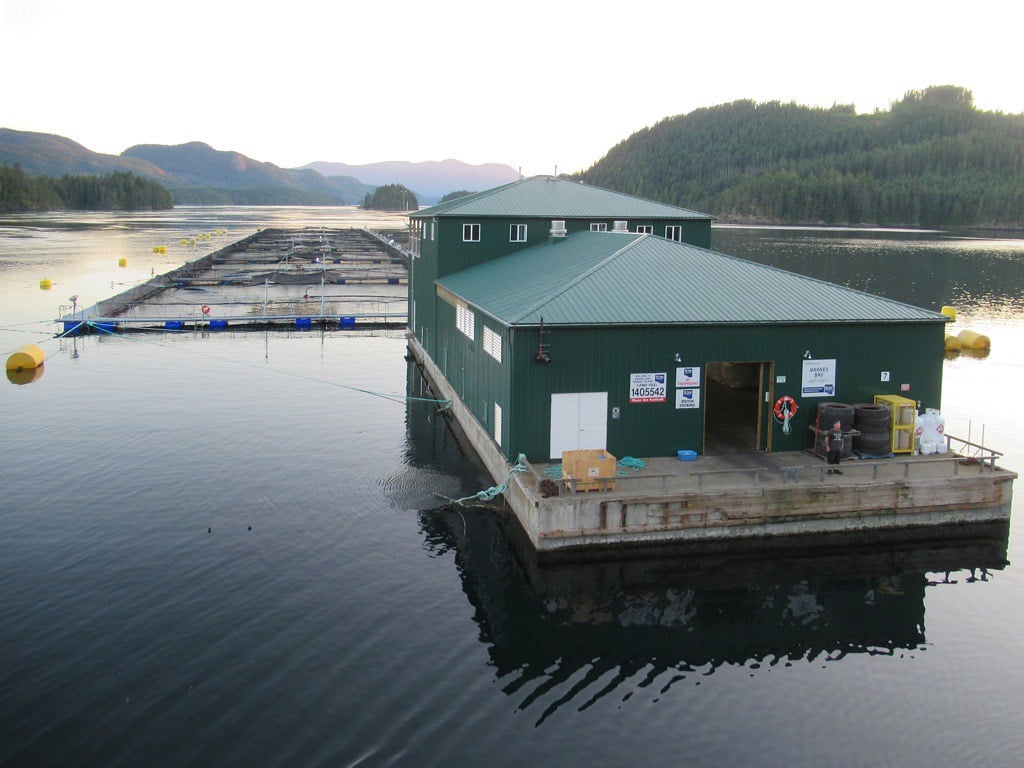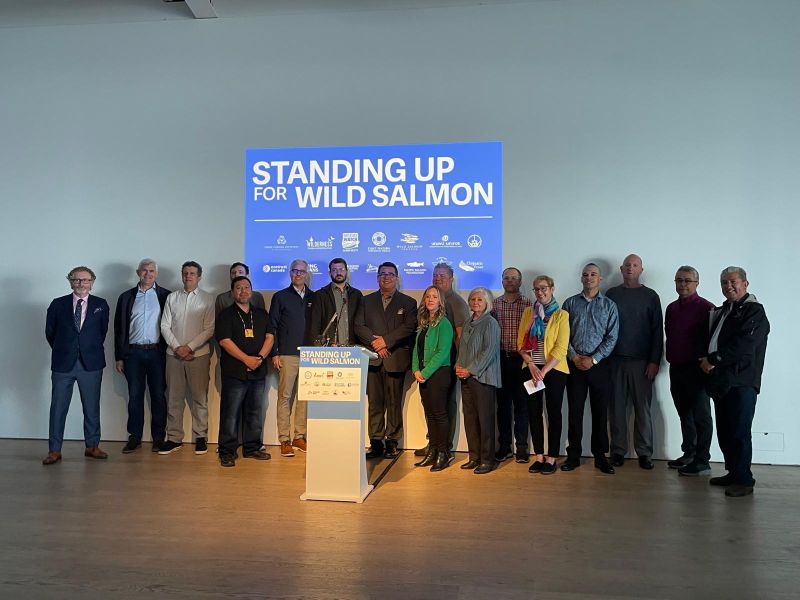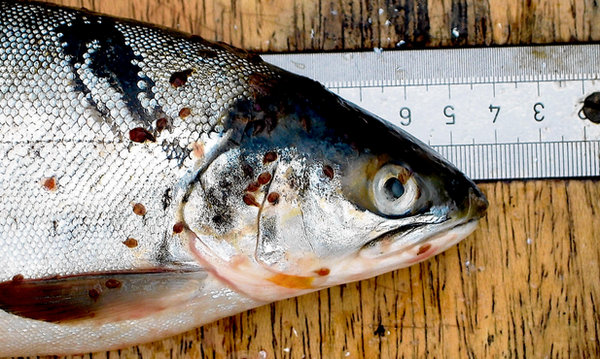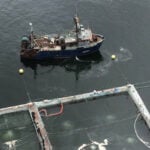A new investigation is being launched into claims that federal scientists with Fisheries and Oceans Canada (DFO) are being silenced from speaking out about the negative impacts of open-net pen farming of Pacific salmon.
Harriet Solloway, the Public Sector Integrity Commissioner, is leading the inquiry. In a letter obtained by The Globe and Mail, she states she will look into DFO officials’ attempts “to silence scientists through reprimands [and] to dissuade them from communicating with the media and public about their research.” The concerns were brought forward by Tony Allard, chair of Wild Salmon Forever, a BC-based conservation organization.
“The Department continues to take concrete steps to ensure transparent, impartial, and evidence-based peer review and scientific advice for decision-makers.”
Fisheries and Oceans Canada
The Commissioner will also investigate whether federal scientists were blocked from testifying before Parliament’s Standing Committee on Fisheries and Oceans. If these claims are found to be true, DFO officials would be in violation of the Values and Ethics Code for the Public Sector and DFO’s Policy on Science Integrity.
According to Solloway’s letter, Lesley MacDougall, science advisor and division manager at the Aquaculture Management Directorate, and Arran McPherson, assistant deputy minister of ecosystems and oceans science, are the key figures under investigation.
“The Department continues to take concrete steps to ensure transparent, impartial, and evidence-based peer review and scientific advice for decision-makers,” a media representative with DFO wrote via email in response to The Skeena’s request for comment.

“We take any instance where allegations of misconduct are received seriously, including from outside parties. However, it would be inappropriate for DFO to comment on individual cases,” the representative added.
Licensing Deadline Approaches
The debate on fish farms in BC has been heating up as the aquaculture industry awaits a federal transition plan for the Liberal’s promise to shutter open-net pen salmon farms in the province. Initially intended to be released in 2023, the transition plan has still not been released. All BC salmon farm licenses are set to expire on June 30, 2024.
“If we’re supposed to have a plan to transition from open nets by 2025, and we don’t have that plan yet, why are we even considering two to six-year licenses when that would put us beyond that deadline?”
Stan Proboszcz, Senior Scientist at Watershed Watch Salmon Society
Wild salmon advocates were very concerned when Fisheries and Oceans Canada released a proposal earlier this year to extend salmon farm licenses for another two to six years. The proposed license changes directly conflict with the federal government’s promise to deliver a transition plan to phase out fish farms in BC.
“If we’re supposed to have a plan to transition from open nets by 2025, and we don’t have that plan yet, why are we even considering two to six-year licenses when that would put us beyond that deadline?” asked Stan Proboszcz, Senior Scientist at Watershed Watch Salmon Society, at the time. “It’s putting the cart before the horse.”
Farming Lobbying Sky-rockets
Pro-aquaculture lobbying is drastically increasing according to a new report released by Watershed Watch. Lobbying of federal officials by industry proponents has gone from 12 interactions in 2015 to 52 in 2022 and up to 214 in 2023. So far, in the first quarter of 2024, over 50 communications have already been reported to the Federal Lobby Register.
Watershed Watch additionally obtained federal documents that showed 14,722 emails were sent to the federal government from private citizens between August 11 and November 15, 2022. 98% of those communications were in favour of removing open net-pen fish farms from BC’s coast. Zero emails were in favour of keeping salmon farms in the province.
Expiry Date Looms
Last December, BC Premier David Eby chimed in, saying, “I think it’s safe to say the social licence for those [open-net pen fish farms] that just sit in the ocean and cause the death of other fish in British Columbia has expired.” That statement was in response to a DFO report that showed over 817,000 wild fish were killed due to open-net pen salmon farm operations near Tofino.

Cermaq Canada – whose farming licences had just been expanded by DFO despite the government’s promises – was responsible for a significant number of these herring deaths through their farming activities in Clayoquot Sound.
The Liberal government committed in 2019 to removing all open-net fish farms from BC waters by 2025 out of concern for the health of wild fish populations. The decision was based on the scientific evidence that fish farms breed parasites and diseases that then transfer to the smolts, putting wild salmon populations at risk.
The government later backtracked, saying it would aim to release a transition plan for their removal by 2025. The transition plan is expected sometime in June 2024.
UPDATE: As of June 17, 2024, The Globe & Mail is reporting that the federal government is planning on releasing a transition plan this Wednesday that extends salmon farm licenses in BC for another five years.





